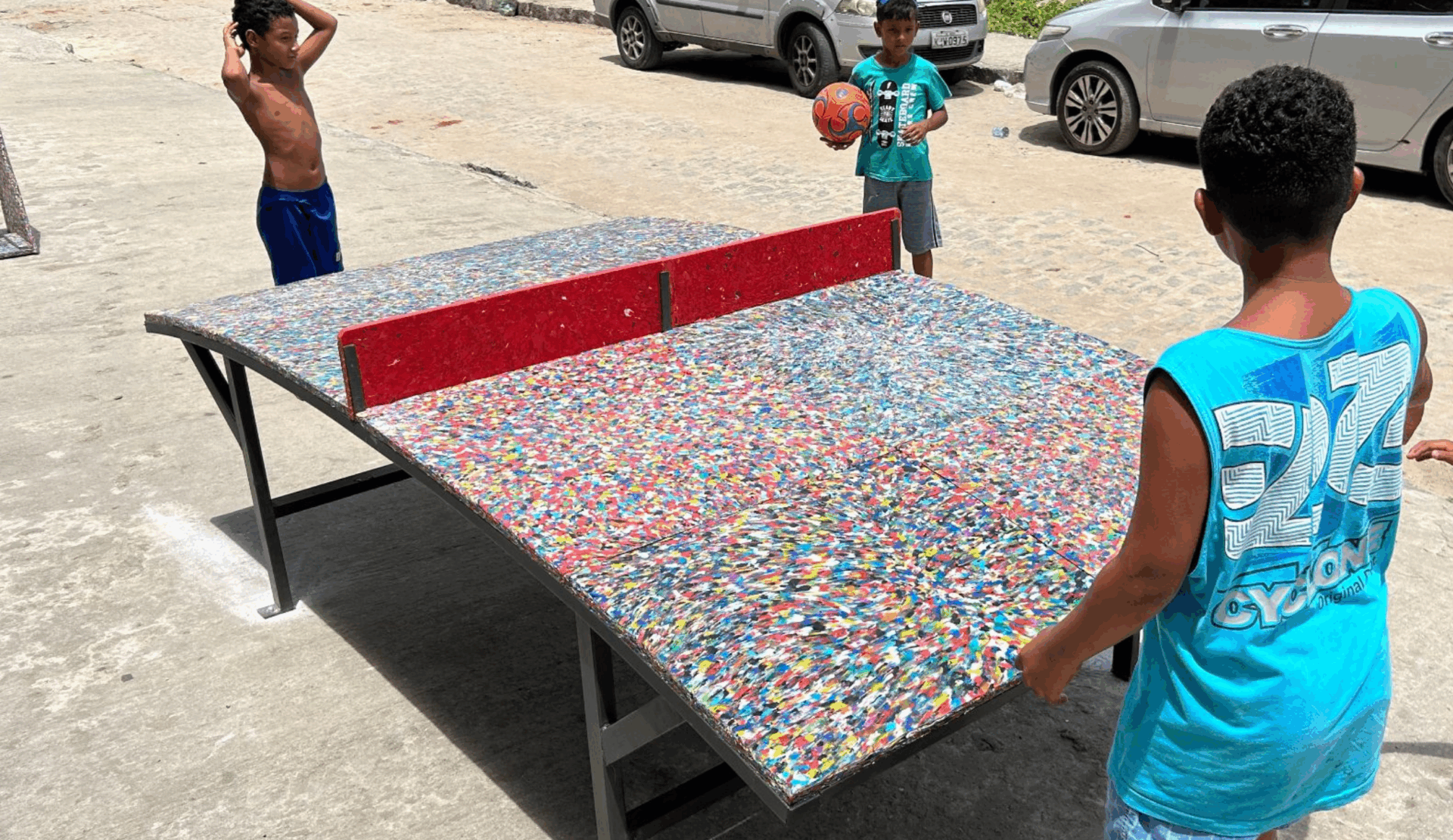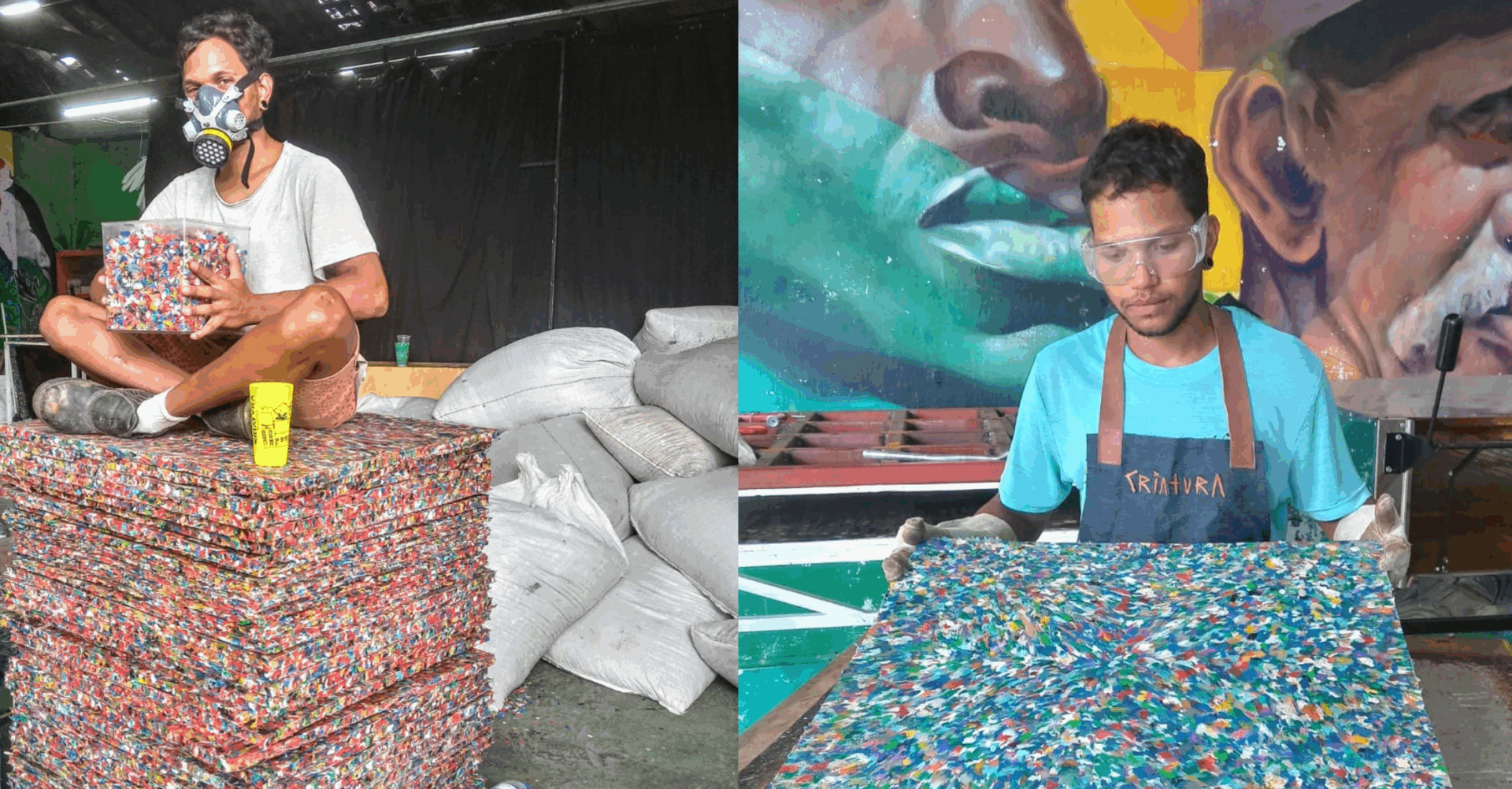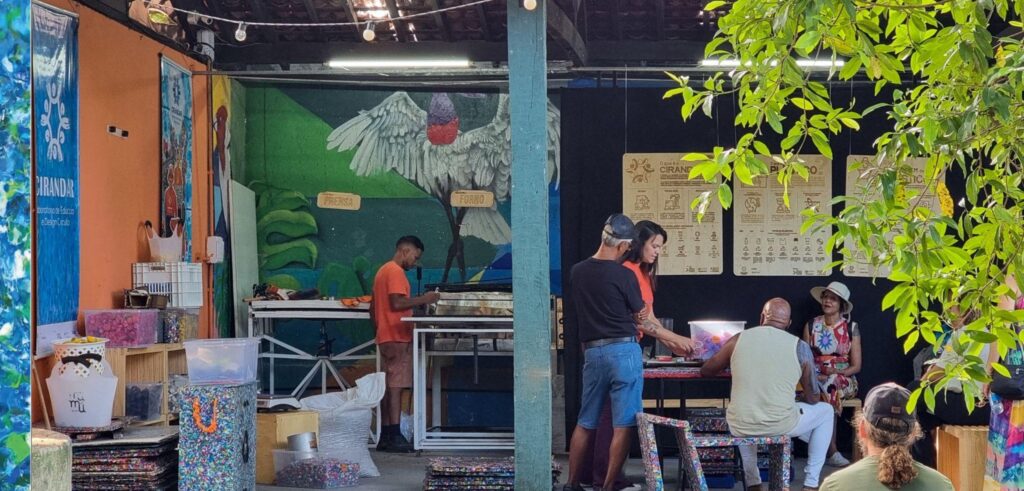In Brazilian Portuguese, cirandar evokes the joyful act of dancing hand-in-hand in a continuous circle, guided by the rhythm of ciranda—a traditional dance rooted in community, inclusion, and shared movement. This circular motion is more than choreography; it’s a metaphor for collective harmony and the power of togetherness.
Inspired by this symbolism, Cirandar is also the name of a community-driven laboratory developed by Casa Criatura, a GIG Hub Member based in Olinda, Brazil. The project transforms plastic waste into functional urban furniture, utilising circular design principles and promoting environmental education. By engaging residents in co-creation, Cirandar fosters ecological awareness and reimagines waste as a resource. Just as the dance brings people together in a circle, the project creates a loop of sustainability—where discarded materials return to serve the community in new, meaningful forms.
Casa Criatura, led by Juliana Rabelo and Isac Filho, is a creative hub recognised for its work in design and makerspaces. Casa Criatura’s broader mission includes fostering innovation through design and community engagement to explore urban resilience and participatory design. This mission is explicitly evident in their previous initiatives, such as LabStorm Olinda (a partnership among Nörd-Süd-Brücken, GIG, and Instituto ProComum). Cirandar builds upon this foundation, offering a replicable model for environmental education and sustainable production of recycled plastic artefacts for sustainable cities in the global south. The Cirandar project is headquartered in the historic centre of Olinda and operates across Recife, Olinda, and Fernando de Noronha Island.
Cirandar was launched in late 2022 as a community-driven initiative focused on circular design and environmental education. In 2023, it earned first place in the “Saneamento do Futuro – Rio Sem Plásticos” (Future Sanitation – Rivers Without Plastic) challenge, organised by Brazil’s National Agency for Waters and Sanitation (ANA) and the Brazilian Agency for Industrial Development (ABDI).

The Lab’s Methodology
Cirandar’s methodology is grounded in the principles of the 3Rs—Reduce, Reuse, and Recycle—and incorporates open-source design practices and products, utilising low-budget machinery such as shredders, presses, and extruders to process plastic waste into plastic sheets, later used as components for urban furniture. To enable replication and adaptation by other communities worldwide, Casa Criatura shares these developed machines and products online under open licences.
Further, the educational component of Cirandar is central to its approach. Designed with both theoretical and practical sessions, the programme includes activities such as field visits, creative workshops, plastic separation knowledge and prototyping sessions, encouraging participants to explore the harsh environmental impact of plastic waste and the possibilities offered by circular economy solutions.

One of the pilot activities involved twenty students from an Olinda public school, selected for their engagement and interest: over five days, they participated in immersive experiences, including a reconnection with local river ecosystems, a visit to a waste recycling cooperative, and hands-on urban furniture production at Casa Criatura’s lab.
The Lab’s Impact
The project’s co-designed products include benches, chairs, tables, table tennis and waste separators for use in public spaces and schools, reinforcing the connection between environmental education and substantial community benefits. Each circular bench, for example, incorporates up to 400kg of recycled plastic, and a simple urban chair can use up to 60 kilograms of recycled material.
Cirandar also contributes to the cities’ local economy by involving waste picker cooperatives in the supply chain, as all the plastic used is purchased from these organisations, supporting their operations and integrating them into the circular production model. A collaboration that enhances the social dimension of the initiative and promotes inclusive sustainability practices. Furthermore, the project aligns with Brazilian national policies, such as the National Policy for Solid Waste (Política Nacional de Resíduos Sólidos – PNRS), and benefits from legislative incentives for recycling industries. These frameworks support the development of circular economy initiatives and encourage responsible waste management across the country.

Cirandar has reached approximately 4,000 individuals, including students, families, and community members, thereby extending its impact beyond its participants. The project’s visibility has also increased through exhibitions, guided visits, panels, and workshops at universities, as well as media coverage and the actual implementation of the produced furnishings in Recife’s city centre and on Fernando de Noronha Atlantic island, furthermore contributing to public discourse on sustainability and future urban transformation.
Looking Ahead
Today, the Cirandar team aims to expand its reach to other municipalities and to create a mobile plastic recycling lab unit to reach remote communities in Brazil. The team also aspires to install new collection structures, facilitators for people with disabilities, sensorial public parks, and to refine their educational methodology. According to Juliana Rabelo, “Casa Criatura wants to exacerbate Cirandar project’s impact, fostering long-term behavioural change in the cities of the Brazilian Northeastern region“.

Isaac Filho believes that “by integrating design, education, and community participation, Casa Criatura demonstrates how local initiatives can address global environmental challenges“. Its recognition at the national level underscores the relevance of circular economy strategies and the importance of inclusive, open-source and place-based solutions for sustainable development.


